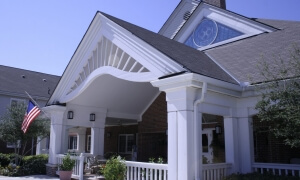
What to Look for When You Are Home for the Holidays
By CarePatrol of San Mateo County
The holidays: a time for reminiscing and spending time with loved ones. For long-distance caregivers, the holidays are also a good time to evaluate your loved one and their home.
To help you get started, here are several major things for you to look for as you visit the homes of your aging relatives this holiday season. If you notice anything out of the ordinary, jot it down to share with your loved one’s medical team.
Inaccessible Storage
This is one of the easiest ones to spot, and one of the easiest problems to correct. For most of us, it makes sense to store bulky items or items we don’t need very often in the back of closets or on high shelves. But for an older person, accessing storage areas can be near impossible. Offer to take down items from high shelves well before they are needed. If possible, look for a more easily accessible storage solution for the item. Shelves to bring items off the ground, sturdy wall-mounted handrails by every set of stairs, and extra lighting in storage areas are easy additions to make things easier for your loved ones.
Fall Hazards
Older people tend to have stiffer joints, worsening eyesight, and slower reaction times than they did when they were younger. These three factors, among others, contribute to higher rates of falls (and fall-related injuries) among seniors. Look around for fall hazards and try to remove or relocate any items that could throw an older adult off balance. Loose handrails, rugs without non-slip backing, and unsecured furniture can all cause a senior to lose their balance unexpectedly. Also, be on the lookout for issues like electrical cords or uneven floor surfaces that are more difficult to navigate without proper lighting.
Balance Issues
Watch your loved one as they walk around. Do they look less stable than the last time you saw each other? Are you worried that they’ll tip over when pushing themselves out of their favorite chair? The discussion on using a cane, walker, or other mobility device is very difficult to start. But it can mean a longer period of independence if that cane prevents your loved one from falling and injuring themselves.
Memory Issues or Confusion
One of the scariest changes to unexpectedly see in your loved one is issues with their memory. Problems with short-term memory are not at all uncommon among older adults. Any changes in mental health should be reported to their primary care doctor as soon as possible – there are many conditions that can cause temporary confusion or memory problems (like a bladder infection) that need to be treated as soon as possible. Be on the lookout for small things: items that are “put away” in places that don’t make sense, soiled clothes being put away as clean laundry, or difficulty distinguishing between morning and evening.
Loneliness or Isolation
Most seniors report feeling lonely as they get older. Sometimes, this loneliness goes hand-in-hand with depression – a common ailment among older adults. It’s important that you, as a family caregiver, make them feel loved and supported. But it’s also important that they’re able to visit with people outside of their family. Offer suggestions for friends to get in touch with and look for local events for older adults. Check with your local Aging Resource Center for upcoming events and to see if there is a ride-share program for older adults in the community.
Missed Medications
It’s easy to forget a dose or two of medication every once in a while. But if you’re noticing that a 30-day supply filled in August is still around in November, you should talk with your loved one’s doctor or pharmacist. They will have plenty of ideas to help you and your loved one manage their medication regimen.
Incontinence and Other Odors
The sense of smell fades as we get older. There are many smells that can alert you to a problem happening with your loved one. Be on the lookout for unusual body odor, for example, persistent bad breath, sweet-smelling breath, or a “sweaty” smell that lingers after bathing can all be caused by different conditions or medication side-effects. If you’re noticing frequent bouts of incontinence or suspicious stains on your loved one’s furniture, you may need to have “that talk”.
Today, there are many types of low-cost, discreet incontinence products that help protect your loved one’s clothes, furniture, and dignity. Other smells to be on the lookout for are rotting food and stinky garbage that may indicate that your loved one needs further assistance with cleaning or meal preparation.
If you notice any changes in your loved one this winter, it’s important to take note and pass your concerns along to their primary care provider. They will be able to work with you to make a care plan as you move forward. Enjoy the time you spend together with your loved ones this holiday season. Any time spent together is special.